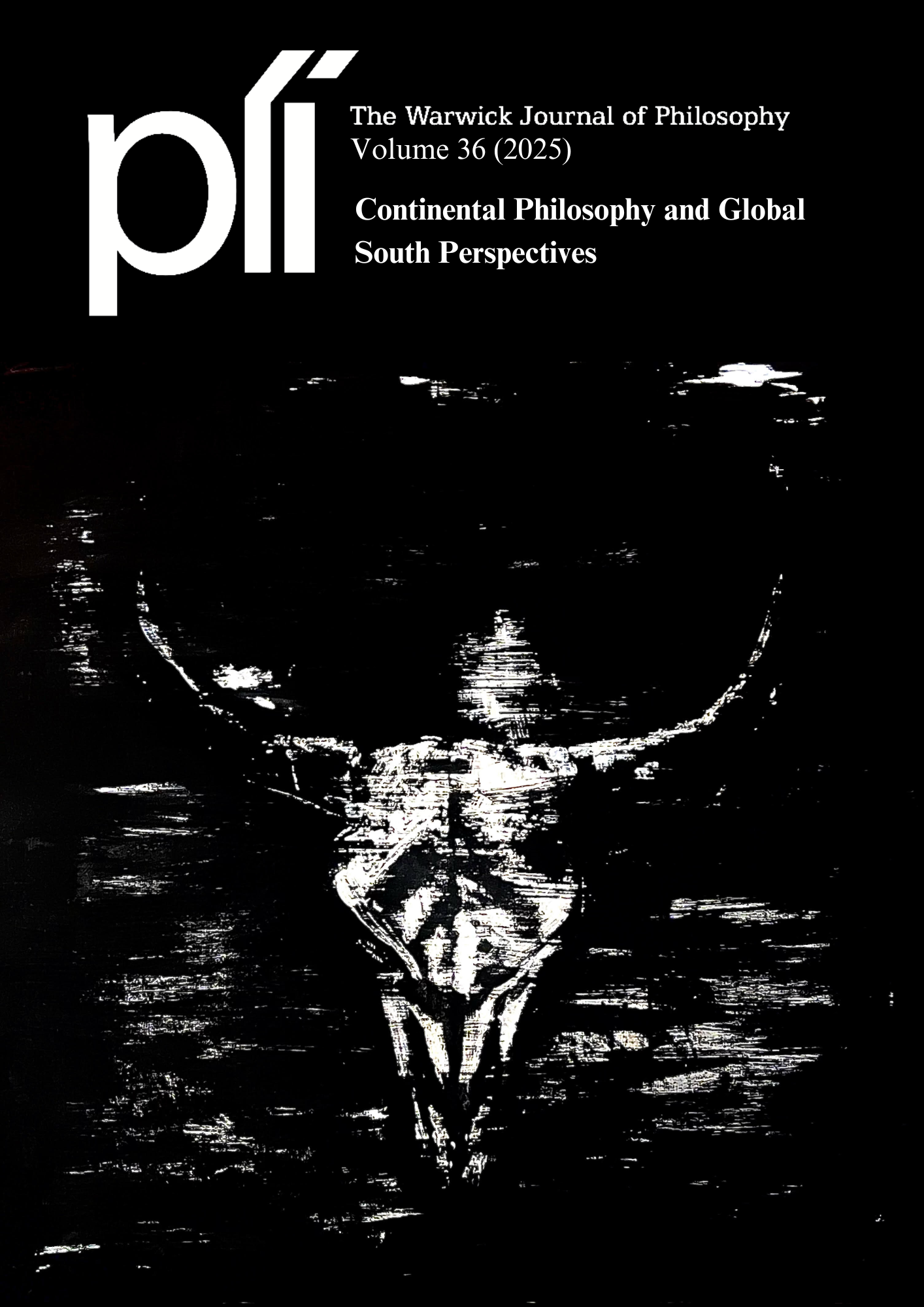Abstract
The goal of this article is to develop a critical comparison between Deleuze and Guattari's analysis of Capitalism on a “global scale” and the works of Samir Amin. This comparative approach is justified given the Deleuzoguattarian influence of Amin’s concept of "unequal exchange" in A Thousand Plateaus. However, one can identify two more theoretical affinities and a point of intersection in both analyses about the capitalist system in a broader sense: a) they offer an explanation of Capitalism’s historical accumulation processes that contradicts the evolutionist perspective of classical Marxism and Modern philosophies of History; b) both employ the concept of precapitalist social formations instead of the well know notion of modes of production – which involves the political debate about the State (discussed in Deleuze-Guattari's “Urstaat” and Amin's “Tributary Formations”); c) and, finally, an analytical consonance between dependency theory and Amin’s notion of peripherical social formations and Deleuze and Guattari's discussion of global polarities (i.e., the geopolitical organization between center-periphery and North/South).
References
Amin, S. (1972). “Le modèle théorique d'accumulation et de développement dans le monde contemporain. La problématique de transition.” Revue Tiers-Monde 13 (52): 703-726.
_____. (1972). “Underdevelopment and Dependence in Black Africa: Historical Origin.” Journal of Peace Research 9 (2):105-119.
_____. (1974). Accumulation on a World Scale. A critique of the theory of underdevelopment. (Two Volumes). New York: Monthly Review Press
_____. (1980). Class and Nation. Historically and in the Current Crisis. New York: Monthly Review Press.
_____. (1990). Delinking: Towards a polycentric World. New York: Zed Books.
_____. (1994). “The Future of Global Polarization.” Review (Fernand Braudel Center) 17 (3): 337-347.
_____. (2009). Eurocentrism. Modernity, Religion, and Democracy: A Critique of Eurocentrism and Culturalism. New York: Monthly Review Press.
_____. (2010). The law of worldwide value. New York: Monthly Review Press.
_____. (2011). Global History. A View from the South. Dakar, Nairobi and Oxford: Pambazuka Press.
Anderson, K. (2010). Marx at the Margins. On Nationalism, Ethnicity and Non-Western Societies. Chicago: University of Chicago Press.
Barbour, F; Hickel, J; Lemos, M. (2024). “Unequal exchange of labour in the world economy.” Nature Communications 15: 1-15.
Buchanan, I. (2008). “Power, Theory and Praxis”. In Deleuze and Politics, edited by Ian Buchanan and Nicholas Thoburn. Edinburgh: Edinburgh University Press.
Deleuze, G; Guattari, F. (1983). Anti-Oedipus. Minneapolis: University of Minnesota Press.
_____. (2005). A Thousand Plateaus: Capitalism and Schizophrenia. Minneapolis: University of Minnesota Press.
Dirlik, A. (2007). “Global South: Predicament and Promise.” The Global South 1(1): 12-23.
Dunn, S. (1982). The Fall and Rise of the Asiatic Mode of Production. New York: Routledge.
Fajardo, M. (2022). The World that Latin America created: The United Nations Economic Comission for Latin America in the Development Era. Massachusetts: Harvard University Press.
Foster-Carter, A. (1978). “The Modes of Production Controversy.” New Left Review 107: 47-77.
Garo, I. (2008). Foucault, Deleuze, Althusser & Marx. La politique dans la philosophie. Demopolis: Paris.
_____. (2008). “Molecular Revolutions: The Paradox of Politics in the Work of Gilles Deleuze.” In Deleuze and Politics, edited by Ian Buchanan and Nicholas Thoburn. Edinburgh: Edinburgh University Press.
Gunder Frank, A. (1969). Capitalism and Underdevelopment in Latin America: Historical Studies of Chile and Brazil. New York: Monthly Review Press.
_____. (1970). Latin America: Underdevelopment or Revolution. New York: Monthly Review Press.
Gosh, B. N. (2001). Theory of dependence revisited. Routledge: New York.
Haldon, J. (1993). The State and the Tributary Mode of Production. London: Verso.
Hobsbawm, E. (1964). “Introduction.” In Pre-capitalist Economic Formations, by Karl Marx. New York: International Publishers.
Katz, C. (2019). Dependency Theory after Fifty Years. The continuing relevance of Latin American Critical Thought. Boston: Brill.
Larrain, J. (1989). Theories of Development. Capitalism, Colonialism and Dependency. Cambridge: Polity Press.
Marx, K. (1981). A Contribution to the Critique of Political Economy. London: Lawrence and Wishart.
_____. (1993). Grundrisse: Foundations of the Critique of Political Economy. London: Penguin Books.
Moghadam, V. (1989). “Against Eurocentrism and Nativism: A review essay on Samir Amin's Eurocentrism and other texts.” Socialism and Democracy 5(2): 81-104.
O’Leary, B. (1989). The Asiatic Mode of Production. Oxford: Basil Blackwell.
Patton, P. (2000). Deleuze and the political. New York: Routledge.
Reed, J. (2008). “The Age of Cynicism: Deleuze and Guattari on the Production of Subjectivity in Capitalism.” In Deleuze and Politics, edited by Ian Buchanan and Nicholas Thoburn. Edinburgh: Edinburgh University Press.
Sibertin-Blanc, G. (2009). “Politicising Deleuzian Thought, or, Minority’s Position within Marxism.” In Deleuze Studies (Supplement: Special Issue on Deleuze and Marx 3:119-137.
_____. (2016). State and Politics. Deleuze and Guattari on Marx. Cambridge and London.
Smith, D. (2011). “Flow, Code and Stock: A Note on Deleuze’s Political Philosophy.” Deleuze Studies (supplement) 5: 36–55.
Zourabichvili, F. (2003). Le vocabulaire de Deleuze. Paris: Ellipses.

This work is licensed under a Creative Commons Attribution-NonCommercial-ShareAlike 4.0 International License.
Copyright (c) 2025 Mirian Kussumi, Pablo Azevedo

